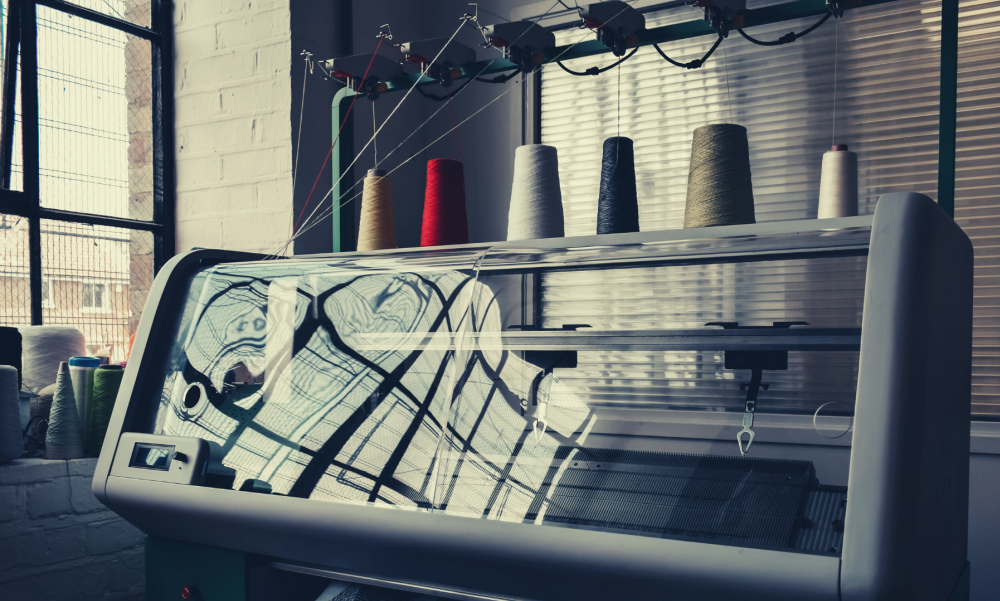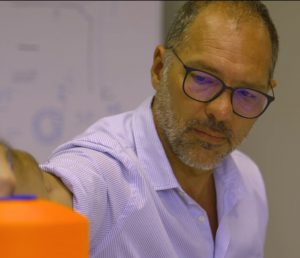
Argar. Protective clothing Made in Italy
Interview with Umberto Negri – CEO Argar Srl

ARGAR – Italian company headquartered in Magnago, near Milano, Argar is one of the European leaders in technical textiles for protective and working clothing.
Which are the main features and the strengths of Argar textiles? Which are the raw materials you work with? What type of technical textiles do you produce?
We are manufacturers of knitted fabrics for protective clothing, that is fabrics with peculiar features that make them particularly strong and fit to be used in working places where a high level of individual protection is required. Hence, we are talking about multifunctional fabrics which can be – according to the specific needs – fireproof, antibacterial, antiabrasive, protecting from sun beams, antistatic, protecting from the electric arc, with high visibility or waterproof.
Argar fabrics, produced in the plant of Magnago, are then used to create PPE (Personal Protection Equipment) and are worn by workers for a long period of time, in very hard environmental conditions.
Our raw materials are different, namely yarns, at the basis of our fabrics, from cotton to polyester and carbon fiber. It is fundamental to be able to identify – for each fabric – the right mix of ingredients and the proper dosage of each, in order to give to the product, the characteristics of strength required.
We pay a lot of attention also to issues like ecology and sustainability and today we have in our catalogue an entire fabric collection (“ONE”) made 100% with recycled polyester and biologic cotton.
Which are the reference markets for Argar, both in terms of industry fields and in terms of strategic geographical areas?
The petrochemical sector is certainly a reference point for us, and I can say that now almost every gas station in Italy is wearing daily clothes made of Argar’s fabrics.
Moreover, the partners of Anas (Azienda Nazionale Autonoma Strade – Italian National Organization that manages road maintenance), wear clothes made with our fabrics, and like them also thousands of workers in metal, sanitary, construction, housing and agri-food industries. For instance, in places where flour is minced, there is a high risk of explosion and it is fundamental to wear a proper technical clothing.
As far as our commercial presence in different geographical areas is concerned, I can say that we work mainly in Europe, with sales agents in Germany, Spain, Czech Republic, Serbia and Switzerland. However, we are about to sign some interesting new agreements with other European countries, in Unites States and in Asia. For us the growth outside European borders is a main and realistic goal.
Recently you introduced to the market a new collection of fabrics – AVIRTEX – with antiviral and antibacterial features. The product is surely very timely, in the difficult period we are going through, marked by the Covid emergency. Could you please tell us more about this project?
AVIRTEX is the flagship product which can allow us to extend our business also out of Europe, in North America and Asia.
We created fabrics of AVIRTEX collection in collaboration with HeiQ, a swiss company leader in the formulation of chemical products for textile industry. The outcome is very interesting, and the tests were very positive: virus and bacteria on fabrics are automatically eradicated within a very short delay of time (between 2 and 5 minutes) and with a high level of effectiveness (99%). It is clear that a product like that, while we are in the midst of a pandemic, has an incredible potential and can be a very important resource for the safety of who works firstly in sanitary environments (hospitals, RSA, general practitioners, dentists, physiotherapists, etc.), but also in hotels, restaurants, aircrafts, cruise ships or schools (school aprons).
Given this, I wish of course that this pandemic will be over soon, and I am also convinced that ARVITEX textiles will stay successfully on the market even after the Covid, as valuable supports to self-protection in special environments.
As businessman, how do you perceive the general situation of textile industry in this period, where the sanitary emergency is still going on?
I think that we should make a basic distinction between fashion-textile, namely the fashion world on one side, and the technical textile on the other side.
The fashion-textile is suffering heavy blows, with entire collection that “went up in flames” and with an important stagnation of demand. In addition, the smart-working phenomenon is creating severe damages in this point of view, because who works totally or partially from home, will buy less clothes in comparison with those who work at the office five days a week.
The situation will change, this industry will recover, but it will take time.
As far as the technical textile is concerned, which is the field where Argar has always worked, the situation is much better. However not idyllic. We can say that the trend, for us and for our competitors is light and dark: on one hand the lockdown and the period right after determined a decreasing demand in some strategic sectors for us (if workers and gas stations are working less, for instance, they buy less protection gears), on the other hand the increase needs and demand in sanitary environments, and in general the growing necessities in terms of personal safety, created new opportunities (that’s the case, for example, of the collection AVIRTEX textiles, that I mentioned above).
Hence, it is no coincidence that a certain number of textile-fashion companies are working to diversify their production, entering also in the field of technical textile with new products. Actually, this is a phenomenon we are witnessing for several years, which Covid just pushed forward. However, I have serious doubts that you can improvise in this field: in technical textile there is nothing aleatory, everything is very precise and it is grounded on a high level of skills and on delays that are completely unknown to the fashion world. In technical textile it will take many years to bring to the market a new product. First of all, you have to comply with specific requirements in order to get the certifications (and this can take a couple of years), then you need another year (or two) to finally sell the product. There aren’t four collections per year and here the principle is quite the opposite: if the problem of the fashion world today is the promptness, in technical textile we have to reason on long timing and on niche skills that are very hard to find. Furthermore, Italy has historically under-invested in technical textile, an industry that is composed by very few companies, like Argar. These are companies which are successful and appreciated worldwide for their products’ quality but unable – unlike what’s happening in the fashion textile world – to make common cause which can be relevant in terms of the overall economic system of the country.
Personally I hope that the technical textile made in Italy may grow as a whole, but – as I said before – this can happen only through a process of training and investments along many years, not only after an improvisation driven by the sanitary emergency. However, as far as synergies and contaminations from the world of fashion towards technical textile are concerned, I think that in the last few years there has been a trend to emphasize the esthetical features also in technical textiles, by inserting in protection garments some visual elements belonging to fashion and sport world. In Argar as well, we are very concerned with the esthetical appearance of our products, however we always bear in mind that what really matters in our world is the technical efficiency of the product, confirmed by all the certifications.

